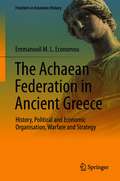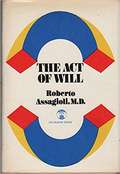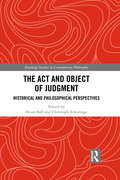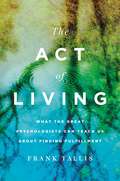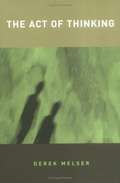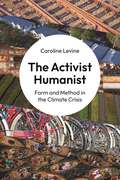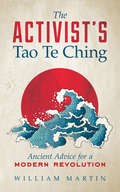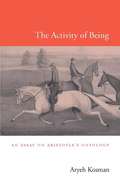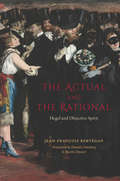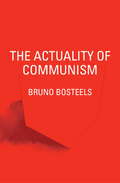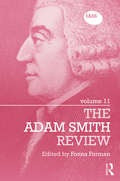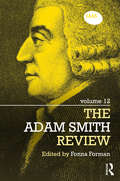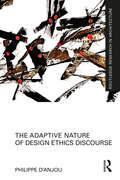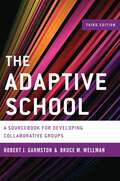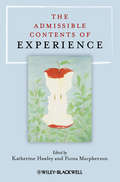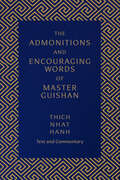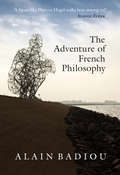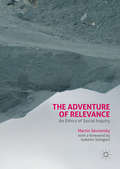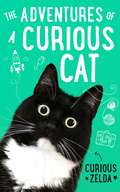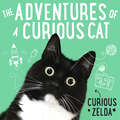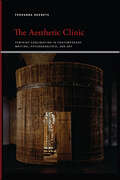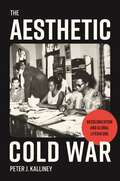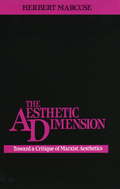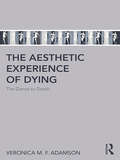- Table View
- List View
The Achaean Federation in Ancient Greece: History, Political and Economic Organisation, Warfare and Strategy (Frontiers in Economic History)
by Emmanouil M. EconomouThis book analyses ancient Greek federalism by focusing on one of the most organised and advanced Greek federal states, the Achaean Federation Sympoliteia. Unlike earlier studies that mainly focused on its political history, this book adopts an interdisciplinary approach, analysing aspects of the economic organization and institutions, and the political economy of the Achaean Federation, and combining these findings with political history. It also discusses the strategic choices made by significant historical figures such as generals Aratos and Philopoemen. The analysis of the Achaean Federation verifies the intertemporal federal axiom, which states that the success and viability of federal experiment is achieved when the benefits of participation for the member-states exceed the costs of conferring national sovereignty on supranational federal authorities.The book further argues that the Achaeans developed a system of sophisticated direct democratic procedures in decision-making on federal matters, as well as significant and highly sophisticated (for the era) economic institutions and federal practices, in order to achieve bonds of trust and legitimacy regarding their innovative federal structure. These practices included, among others, the creation of free market type economic institutions, a monetary union, federal budget, provision of public goods and a common defense and security policy for all the Achaean city-state members. Lastly, the book relates these findings to ideas on how the Achaean Federation would have dealt with a series of current global issues, such as European Union integration and problems such as Euroscepticism, Brexit and immigration.
The Act Of Will
by Roberto AssagioliThis unique book brings human will back to the center of everyday life. Here there is none of the old notion of will as "something stern and forbidding which condemns and represses... the personality drives." Instead, Dr. Roberto Assagioli defines the will as a constructive force guiding intuition, impulse, emotion, and imagination toward complete realization of the self. He proposes a set of exercises that the reader can practice at home and that train the will for "optimum use at all levels of existence - from the personal to the transpersonal and reaching into the realm where the individual will merges with the universal will."
The Act and Object of Judgment: Historical and Philosophical Perspectives (Routledge Studies in Contemporary Philosophy)
by Brian Ball Christoph SchuringaThis book presents 12 original essays on historical and contemporary philosophical discussions of judgment. The central issues explored in this volume can be separated into two groups namely, those concerning the act and object of judgment. What kind of act is judgment? How is it related to a range of other mental acts, states, and dispositions? Where and how does assertive force enter in? Is there a distinct category of negative judgments, or are these simply judgments whose objects are negative? Concerning the object of judgment: How many objects are there of a given judgment? One, as on the dual relation theory of Frege and Moore? Or many as in Russell’s later multiple relation theory? If there is a single object, is it a proposition? And if so, is it a force-neutral, abstract entity that might equally figure as the object of a range of intentional attitudes? Or is it somehow constitutively tied to the act itself? These and related questions are approached from a variety of historical and contemporary perspectives. This book sheds new light on current controversies by drawing on the details of the distinct intellectual contexts in which previous philosophers’ positions about the nature of judgment were formulated. In turn, new directions in present-day research promise to raise novel interpretive prospects and challenges in the history of philosophy.
The Act of Living: What the Great Psychologists Can Teach Us About Finding Fulfillment
by Frank TallisLife and its meaning is a mystery almost impossible to solve, but what can the leading theories teach us about the search for purpose?For most of us, the major questions of life continue to perplex: Who am I? Why am I here? How should I live? In the late nineteenth century, a class of thinkers emerged who made solving these problems central to their work. They understood that human questions demand human answers and that without understanding what it means to be human, there are no answers.Through the biographies and theories of luminaries ranging from Sigmund Freud to Erich Fromm, Frank Tallis show us how to think about companionship and parenting, identity and aging, and much more. Accessible yet erudite, The Act of Living is essential reading for anyone seeking answers to life's biggest questions.
The Act of Thinking
by Derek MelserMelser argues that the core assumption of both folk psychology and cognitive science that thinking goes on in the head is mistaken. He argues that thinking is not an intracranial process of any kind, mental or neural, but is rather a learned action of the person.
The Activist Humanist: Form and Method in the Climate Crisis
by Caroline LevineAn argument that humanists have the tools—and the responsibility—to mobilize political power to tackle climate changeAs climate catastrophes intensify, why do literary and cultural studies scholars so often remain committed to the separation of aesthetic study from the nitty-gritty of political change? In this thought-provoking book, Caroline Levine makes the case for an alternative view, arguing that humanists have the tools to mobilize political power—and the responsibility to use those tools to avert the worst impacts of global warming. Building on the theory developed in her award-winning book, Forms, Levine shows how formalist methods can be used in the fight for climate justice.Countering scholars in the environmental humanities who embrace only “modest gestures of care”—and who seem to have moved directly to “mourning” our inevitable environmental losses—Levine argues that large-scale, practical environmental activism should be integral to humanists’ work. She identifies three major infrastructural forms crucial to sustaining collective life: routines, pathways, and enclosures. Crisscrossing between art works and public works—from urban transportation to television series and from food security programs to rhyming couplets—she considers which forms might support stability and predictability in the face of growing precarity. Finally, bridging the gap between academic and practical work, Levine offers a series of questions and exercises intended to guide readers into political action. The Activist Humanist provides an essential handbook for prospective activist-scholars.
The Activist's Tao Te Ching: Ancient Advice for a Modern Revolution
by William MartinChange and anger are in the air. "We are the 99%," "black lives matter," and "love is love" have become part of the lexicon. Previously unquestioned institutions (police, military, the NSA) are under scrutiny. Heat waves, floods, and earthquakes seem to be increasing. Could there be a silver lining? William Martin turns to the Tao Te Ching and finds that while Taoism is known for its quiet, enigmatic wisdom, the Tao can also have the cleansing force of a rushing river. Martin elucidates these revolutionary messages condemning power seeking and greed. He emphasizes that humans have a "Te" that can help them heal the planet; shows how Taoism's "simplicity" can be subversive and its flexibility a potent force; and reassures us that "When injustice is the rule, justice lies in wait." Provocative and stirring, Martin's Tao flows within and through those who ride the waves of anger and frustration, "and gently guides [them] to true freedom."
The Activity of Being
by Aryeh KosmanUnderstanding “what something is” has long occupied philosophers, and no Western thinker has had more influence on the nature of being than Aristotle. Focusing on a reinterpretation of the concept of energeia as “activity,” Aryeh Kosman reexamines Aristotle’s ontology and some of our most basic assumptions about the great philosopher’s thought.
The Actual and the Rational: Hegel and Objective Spirit
by Jean-François KervéganOne of Hegel’s most controversial and confounding claims is that “the real is rational and the rational is real.” In this book, one of the world’s leading scholars of Hegel, Jean-François Kervégan, offers a thorough analysis and explanation of that claim, along the way delivering a compelling account of modern social, political, and ethical life. ?Kervégan begins with Hegel’s term “objective spirit,” the public manifestation of our deepest commitments, the binding norms that shape our existence as subjects and agents. He examines objective spirit in three realms: the notion of right, the theory of society, and the state. In conversation with Tocqueville and other theorists of democracy, whether in the Anglophone world or in Europe, Kervégan shows how Hegel—often associated with grand metaphysical ideas—actually had a specific conception of civil society and the state. In Hegel’s view, public institutions represent the fulfillment of deep subjective needs—and in that sense, demonstrate that the real is the rational, because what surrounds us is the product of our collective mindedness. This groundbreaking analysis will guide the study of Hegel and nineteenth-century political thought for years to come.
The Actuality of Communism
by Bruno BosteelsOne of the rising stars of contemporary critical theory, Bruno Bosteels discusses the new currents of thought generated by figures such as Alain Badiou, Jacques Rancière and Slavoj i ek, who are spearheading the revival of interest in communism. Bosteels examines this resurgence of communist thought through the prism of "speculative leftism" - an incapacity to move beyond lofty abstractions and thoroughly rethink the categories of masses, classes and state. Debating those questions with writers including Roberto Esposito and Alberto Moreiras, Bosteels also provides a vital account of the work of the Bolivian Vice President and thinker Álvaro García Linera.From the Hardcover edition.
The Adam Smith Review: Volume 11 (The Adam Smith Review #11)
by Fonna FormanAdam Smith’s contribution to economics is well recognised, but scholars have recently been exploring anew the multidisciplinary nature of his works. The Adam Smith Review is a rigorously refereed annual review that provides a unique forum for interdisciplinary debate on all aspects of Adam Smith’s works, his place in history, and the significance of his writings to the modern world. It is aimed at facilitating debate between scholars working across the humanities and social sciences, thus emulating the reach of the Enlightenment world which Smith helped to shape. This eleventh volume brings together leading scholars from across several disciplines, and offers a particular focus on Smith and Rousseau. There is also an emphasis throughout the volume on the relationship between Smith’s work and that of other key thinkers such as Malthus, Newton, Freud and Sen.
The Adam Smith Review: Volume 12 (The Adam Smith Review #12)
by Fonna FormanAdam Smith’s contribution to economics is well recognised, yet scholars have recently been exploring anew the multidisciplinary nature of his works. The Adam Smith Review is a rigorously refereed annual review that provides a unique forum for interdisciplinary debate on all aspects of Adam Smith’s works, his place in history, and the significance of his writings to the modern world. It is aimed at facilitating debate among scholars working across the humanities and social sciences, thus emulating the reach of the Enlightenment world which Smith helped to shape. This twelfth volume brings together leading scholars from across several disciplines and contributes to two particular themes. First, there is a focus on Adam Smith’s moral and political philosophy, exploring how Smith’s approach finds expression in both abstract philosophy and practical judgment. Second, there is a focus on epistemology, economics, and law, with innovative interpretations of Smithian theories.
The Adaptive Nature of Design Ethics Discourse (Routledge Research in Architecture)
by Philippe d’AnjouHow do designers navigate the ethical discursive territories of design thinking and practice when the same common terms they consistently use across the different design ethics paradigms—like fair, right, good—convey different meanings? Delving into the dynamic and adaptable nature of ethical language and terminology in design, The Adaptive Nature of Design Ethics Discourse argues that it is intrinsically flexible—what can be described as chameleonic. Engaging in a meta-ethical investigation, this book elucidates the interconnections of key terms of design ethics discourse and explores the way in which different frameworks of design ethics both diverge and intersect.The book challenges existing perspectives on ethical discourse in design by highlighting the complexities of such discourse and the tensions that emerge when universal language encounters various ethical views. By shedding light on these tensions, The Adaptive Nature of Design Ethics Discourse provides alternative ways to apprehend the ethical sense of responsibility of designers as well as a foundation for rethinking the discursive fabric of design ethics practice.This pivotal work is intended for researchers, educators, students, and practitioners across all design disciplines, including, among others, architecture, engineering, product design, systems design, and urban planning.
The Adaptive School: A Sourcebook For Developing Collaborative Groups (Christopher-gordon New Editions Ser.)
by Robert J. Garmston Bruce M. WellmanThis 3rd edition of the award winning Adaptive Schools Sourcebook provides both a theoretical and practical guide for groups and teams to develop and focus their collaborative energies to improve teaching practices and enhance student-learning outcomes. In five sections: Becoming Adaptive, Collaboration Matters, Meetings are Teachers’ Work, Resources for Inquiry, and Conflict, Change and Community, the authors draw on decades of personal experiences in schools and research from multiple disciplines to present powerful tools and useful templates for structuring the work of productive professional communities in schools. Readers will learn ways to develop and sustain the fundamental elements for enhancing social capital in schools: distinguishing between dialogue and discussion, establishing seven norms of collaboration, automating language patterns for inquiry and problem solving, facilitating groups and data teams, engaging in productive conflict, and building community. The book offers links to video clips demonstrating key skills, inventories for assessing groups, instruments for assessing personal skills, and a collection of over 150 meeting strategies and facilitator moves for engaging group members in productive interactions.
The Admissible Contents of Experience (Philosophical Quarterly Special Issues #2)
by Fiona Macpherson Katherine HawleyWhich objects and properties are represented in perceptual experience, and how are we able to determine this? The papers in this collection address these questions together with other fundamental questions about the nature of perceptual content. The book draws together papers by leading international philosophers of mind, including Alex Byrne (MIT), Alva Noë (University of California, Berkeley), Tim Bayne (St Catherine’s College, Oxford), Michael Tye (University of Texas, Austin), Richard Price (All Souls College, Oxford) and Susanna Siegel (Harvard University) Essays address the central questions surrounding the content of perceptual experience Investigates how are we able to determine the admissible contents of experience Published in association with the journal Philosophical Quarterly
The Admonitions and Encouraging Words of Master Guishan
by Thich Nhat HanhThich Nhat Hanh's translation and commentary for a Buddhist text that has been long considered one of the three key books for monastic meditation practitionersFor monks, nuns, or laypeople, this text from the days of early Buddhism in China calls on us to wake up and live an authentic life dedicated to spiritual ideals. The Admonitions and Encouraging Words of Master Guishan is offered to new monks and nuns at the time of their ordination together with books on monastic codes of conduct, and it remains a companion and guide throughout their career. The importance of Master Guishan's Classical Chinese text cannot be underestimated. Although it is addressed to monks, it is suitable for anyone who seeks to awaken and live with clarity and intention. Thich Nhat Hanh gives a timely commentary based on his lived experience of guiding several generations of monastic and lay students on their path of practice. The text and commentary have been translated from Vietnamese into English by Bhikshuni True Virtue (Sister Annabel Laity), Thich Nhat Hanh's first Western monastic disciple.
The Adventure of French Philosophy
by Alain BadiouThe Adventure of French Philosophy is essential reading for anyone interested in what Badiou calls the &“French moment&” in contemporary thought.Badiou explores the exceptionally rich and varied world of French philosophy in a number of groundbreaking essays, published here for the first time in English or in a revised translation. Included are the often-quoted review of Louis Althusser&’s canonical works For Marx and Reading Capital and the scathing critique of &“potato fascism&” in Gilles Deleuze and Félix Guattari&’s A Thousand Plateaus. There are also talks on Michel Foucault and Jean-Luc Nancy, and reviews of the work of Jean-François Lyotard and Barbara Cassin, notable points of interest on an expansive tour of modern French thought.Guided by a small set of fundamental questions concerning the nature of being, the event, the subject, and truth, Badiou pushes to an extreme the polemical force of his thinking. Against the formless continuum of life, he posits the need for radical discontinuity; against the false modesty of finitude, he pleads for the mathematical infinity of everyday situations; against the various returns to Kant, he argues for the persistence of the Hegelian dialectic; and against the lure of ultraleftism, his texts from the 1970s vindicate the role of Maoism as a driving force behind the communist Idea.
The Adventure of Relevance
by Martin SavranskyAt a time where the relevance of the social sciences is under threat, this innovative book offers a speculative experimentation on the philosophy and methodology of the social sciences to rethink what 'relevance' is, and to cultivate a new ethos of knowledge-making for an eventful world. Engaging a diverse a range of thinkers including Alfred North Whitehead, Gilles Deleuze and Isabelle Stengers, as well as the American pragmatists John Dewey and William James, Martin Savransky challenges longstanding assumptions in the social sciences and argues that relevance is an event that is part and parcel of the immanent and situated processes by which things come to matter. He develops new conceptual tools for cultivating an empiricist ethos of inquiry that is attuned to the question of how things come to matter- an ethics that turns social inquiry into a veritable adventure. The result is an original and rigorous book that infuses knowledge-practices in the social sciences with new sensibilities, creative possibilities, and novel habits of thinking, knowing, and feeling.
The Adventures of a Curious Cat: wit and wisdom from Curious Zelda, purrfect for cats and their humans
by Curious Zelda'A purrfect gift for a loved one with a special affinity for the feline' 'An absolute must for any cat lover''Curiosity is more than a desire to discover. It's a lifestyle, and a purrvilege. It's hours of observing a fly on the wall. It's entering the sock drawer just before it closes. It's sniffing the lampshade one more time . . .'Such is the wisdom of Curious Zelda: social media star, agony aunt, yoga teacher, cat. In The Adventures of a Curious Cat she gives insight into her view of the world and dispenses unparalleled wisdom. Zelda explains, in her unique voice, how to handle humans, how to communicate with furniture, and most importantly how to live a life curiously. It's the ultimate self-help guide for any cat, or indeed, their human.
The Adventures of a Curious Cat: wit and wisdom from Curious Zelda, purrfect for cats and their humans
by Curious Zelda'A purrfect gift for a loved one with a special affinity for the feline''An absolute must for any cat lover''Curiosity is more than a desire to discover. It's a lifestyle, and a purrvilege. It's hours of observing a fly on the wall. It's entering the sock drawer just before it closes. It's sniffing the lampshade one more time . . .'Such is the wisdom of Curious Zelda: social media star, agony aunt, yoga teacher, cat. In The Adventures of a Curious Catshe gives insight into her view of the world and dispenses unparalleled wisdom. Zelda explains, in her unique voice, how to handle humans, how to communicate with furniture, and most importantly how to live a life curiously. It's the ultimate self-help guide for any cat, or indeed, their human.
The Adventures of a Curious Cat: wit and wisdom from Curious Zelda, purrfect for cats and their humans
by Curious Zelda'Curiosity is more than a desire to discover. It's a lifestyle, and a purrvilege. It's hours of observing a fly on the wall. It's entering the sock drawer just before it closes. It's sniffing the lampshade one more time . . .'Such is the wisdom of Curious Zelda: social media star, agony aunt, yoga teacher, cat. In The Adventures of a Curious Cat she gives insight into her view of the world and dispenses unparalleled wisdom. Zelda explains, in her unique voice, how to handle humans, how to communicate with furniture, and most importantly how to live a life curiously. It's the ultimate self-help guide for any cat, or indeed, their human.
The Aesthetic Clinic: Feminine Sublimation in Contemporary Writing, Psychoanalysis, and Art (SUNY series, Insinuations: Philosophy, Psychoanalysis, Literature)
by Fernanda NegreteIn The Aesthetic Clinic, Fernanda Negrete brings together contemporary women writers and artists well known for their formal experimentation—Louise Bourgeois, Sophie Calle, Lygia Clark, Marguerite Duras, Roni Horn, and Clarice Lispector—to argue that the aesthetic experiences afforded by their work are underwritten by a tenacious and uniquely feminine ethics of desire. To elaborate this ethics, Negrete looks to notions of sublimation and feminine sexuality developed by Freud, Baudelaire, Mallarmé, and Nietzsche, and their reinvention with and after Jacques Lacan, including in the schizoanalysis of Gilles Deleuze and Félix Guattari. But she also highlights how psychoanalytic theory draws on writing and other creative practices to conceive of unconscious processes and the transformation sought through analysis. Thus, the "aesthetic clinic" of the book's title (a term Negrete adopts from Deleuze) is not an applied psychoanalysis or schizoanalysis. Rather, The Aesthetic Clinic privileges the call and constraints issued by each woman's individual work. Engaging an artwork here is less about retrieving a hidden meaning through interpretation than about receiving a precise transmission of sensation, a jouissance irreducible to meaning. Not only do art and literature serve an urgent clinical function in Negrete's reading but sublimation itself requires an embrace of femininity.
The Aesthetic Cold War: Decolonization and Global Literature
by Peter J. KallineyHow decolonization and the cold war influenced literature from Africa, Asia, and the CaribbeanHow did superpower competition and the cold war affect writers in the decolonizing world? In The Aesthetic Cold War, Peter Kalliney explores the various ways that rival states used cultural diplomacy and the political police to influence writers. In response, many writers from Africa, Asia, and the Caribbean—such as Chinua Achebe, Mulk Raj Anand, Eileen Chang, C.L.R. James, Alex La Guma, Doris Lessing, Ngũgĩ wa Thiong'o, and Wole Soyinka—carved out a vibrant conceptual space of aesthetic nonalignment, imagining a different and freer future for their work.Kalliney looks at how the United States and the Soviet Union, in an effort to court writers, funded international conferences, arts centers, book and magazine publishing, literary prizes, and radio programming. International spy networks, however, subjected these same writers to surveillance and intimidation by tracking their movements, tapping their phones, reading their mail, and censoring or banning their work. Writers from the global south also suffered travel restrictions, deportations, imprisonment, and even death at the hands of government agents. Although conventional wisdom suggests that cold war pressures stunted the development of postcolonial literature, Kalliney's extensive archival research shows that evenly balanced superpower competition allowed savvy writers to accept patronage without pledging loyalty to specific political blocs. Likewise, writers exploited rivalries and the emerging discourse of human rights to contest the attentions of the political police.A revisionist account of superpower involvement in literature, The Aesthetic Cold War considers how politics shaped literary production in the twentieth century.
The Aesthetic Dimension
by Herbert MarcuseDeveloping a concept briefly introduced in Counterrevolution and Revolt, Marcuse here addresses the shortcomings of Marxist aesthetic theory and explores a dialectical aesthetic in which art functions as the conscience of society. Marcuse argues that art is the only form or expression that can take up where religion and philosophy fail and contends that aesthetics offers the last refuge for two-dimensional criticism in a one-dimensional society.
The Aesthetic Experience of Dying: The Dance to Death
by Veronica M. AdamsonStructured around a personal account of the illness and death of the author’s partner, Jane, this book explores how something hard to bear became a threshold to a world of insight and discovery. Drawing on German Idealism and Jane’s own research in the area, The Aesthetic Experience of Dying looks at the notion of life as a binary synthesis, or a return enhanced, as a way of coming to understand death. Binary synthesis describes the interplay between dynamically opposing pairs of concepts – such as life and death – resulting in an enhanced version of one of them to move forward in a new cycle of the process. Yet what relevance does this elegant word game have to the shocking diagnosis of serious illness? Struggling to balance reason with sense, thought with feeling, this book examines the experience of caring for someone from diagnosis to death and is illustrated with examples of the return enhanced. The concluding chapter outlines how the tension of Jane’s dying has been resolved as the rhythmic patterns of the lifeworld have been understood through the process of reflecting on the experience. This creative and insightful book will appeal to those interested in the medical humanities. It will also be an important reference for practising and student health professionals.
